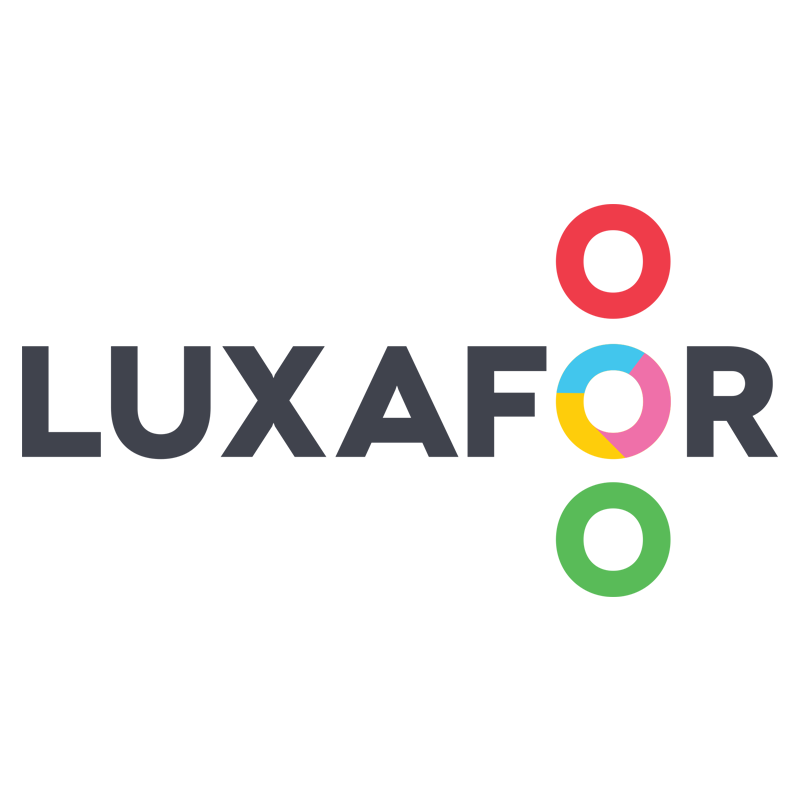How to Become Confident and Successful When You Start a New Job

It is easy to feel overwhelmed when you start a new job, there is a lot to learn, new skills to develop and new office policies to follow, not to mention remembering the names of all of the new colleagues and possible occasional tantrums from clients and demands from partners or seniors. All of this can lower your motivation and undermine confidence by adding a pressure to succeed in your new role from the get go.
As challenging as that may seem – we have been there and want to help you on your way to professional success by providing some useful tips to help guide you. Take a look at the steps to make your advance in your career, helping you develop a strategic approach from the very first day, you just have to figure out which of the advice makes the most sense for your personal or professional goals and focus on those.
Open communication
Good communication is an essential tool for productivity and fruitful working relationships at all levels of the company – even more so now that the remote working model has become the norm. Employees who think about work and their communication style are not only more pleasant colleagues to work with, but also have better performance results and are more effective in connecting with teams, partners, and clients. Signs of good communication:
- Turn to clarity. Whether it’s a Slack message, an email, or a face-to-face meeting, the message needs to be specific: deadlines, dates, people involved, their roles and responsibilities, sequence, purpose, etc. It is also important to know when to speak and when to pause and listen.
- Resolve conflicts instead of creating new ones. When you step back from your ego a little and think about the fact that we all have a common work to do at the workplace, it`s easier to make a promise to each other in order to solve any difficult situation rationally and constructively, instead of making it worse.
- A two-way process. Every communication is the result of the interaction of at least two people involved, so follow-up questions and/or confirmation at the end of the conversation (or email chain) that everything is well understood and will be followed through is highly desirable for maintaining the relationship.
- Increases positive emotions. Signs of good communication are also the positive emotions you bring to the workplace and the exchange of your honest opinions about relevant themes. You can joke, give compliments, or give positive feedback ensuring that the conversations at work are relaxed and pleasant.
Follow manuals and procedures
There are many benefits to user manuals and work procedures as they can shorten the learning curve for a new employee joining a team. As such, leaders have found it useful to incorporate them into their employee onboarding or team-building process. When used appropriately as a guide for more in-depth, live conversations with new teammates, a professional manual can help to improve collaboration, elevate work quality, provide insight, and avoid errors or misunderstandings.
Clear and understandable work instructions or Standard Operating Procedures(SOP) ensure that your colleagues know exactly how their tasks should be performed. It reduces avoidable risks, financial or time losses as the likelihood of things going wrong is lessened. Procedures and instructions also improve efficiency ensuring the very best way of doing a job is clear and understood and will get executed correctly.

Request and use resources
Your company will most likely give you access to certain tools or software necessary to your job duties. Revision those resources, starting with the most important. If you don’t know how to use something, ask if the company offers any internal training sessions or identify additional resources to help you figure out what you need to know.
It is important to use the resources that are available to you, because there is definitely going to be a lot to learn at first. Besides taking notes and using manuals, you can ask for recordings, presentations, marketing materials, product descriptions, ready-made forms, or other types of documentation so you can reference important information later. Make sure to bookmark any relevant digital resources for easy access. Also, ask for any available information in whatever shape or form available – take time to talk and learn from the experience of your colleagues, and don`t be shy to go on an exploration trip to other premises such as production sites or other units and departments.
At the end of the day – the more you know, the more confident you will eventually become about your role. You need to develop new skills and you can only do so by learning from the resources that are provided to you, the ones that you ask for and maybe prepare for yourself, if that will help you in the long run on your path to professional success.
Try to adapt to the new office culture and environment
There are a number of key strategies to work through to ensure you smoothly adapt to your new workplace environment whether you’re experiencing that in an office-based environment, remotely, or in a hybrid environment. First, you must research your new organization thoroughly – preparation and knowledge are very important factors. Remember flexibility is also key and you might need to adjust some of your expectations or habits as your career grows. Give it time as every company has its up and down times. Don`t panic, if you happen to join the team in the middle of a frenetic business period, you may expect things to be different at other points in the near future. Just like human beings change so does company culture, nothing stays permanent for long.
The culture of your new company might change as time goes on even several times. Most likely it could take a full year of employment before you understand the full cultural cycle, take your time, be patient, and persevere. The good news is that taking the time to learn about a company and the people you work with can be a pleasant process if you don`t take it too seriously and don`t let the small stuff get you. Keep your communication and mind open, ask questions, and make an effort, because over time this will help you to adapt better to any new job or change of situation for the long haul.
In essence, every organization has unique work elements and culture embedded in its work environment, which affects how you adapt to change. If you want to adapt to changes in the work environment, you have to understand the organizational culture and other office environment elements like work procedures, work ethics, work hours, and values.
Become more organized, structure your work
Being organized at work means that you are able to coordinate activities and your workflow efficiently to achieve professional as well as personal goals. For instance, it involves delegating tasks appropriately, setting deadlines, timely scheduling meetings, maintaining a tidy work environment, and collaborating effectively. In addition, being organized includes the various actions that you take to ensure complete focus and efficiency in implementing tasks and projects in your workplace.
Organizing involves creating a plan and identifying the best possible steps to achieve your plan. In addition, it helps you complete tasks faster and easier, which allows you to have more valuable time to pursue other career goals. For instance, being organized can provide you with enough time to seek additional certifications or attend further training. When you are more organized, it improves your work-life balance, because effective organization helps to complete your tasks as planned. Therefore you can spend your time on personal needs rather than having to work overtime to meet deadlines.
When you are on top of your tasks, you are able to dedicate the necessary time to your tasks rather than rushing through them. Also, it allows you to approach tasks in a tidy environment with easy access to the necessary paperwork or documents. This ensures that you can complete your tasks faster and achieve more within a shorter period.Your organization skills also ensure you can effectively complete or delegate tasks, which helps your overall productivity.

Use mentoring and guidance
Sometimes your closest mentor at work is your manager, which is why during your first days or weeks, make time to meet with your manager or senior colleagues who will fill that role. If they haven’t scheduled a meeting, go ahead and request one. Talk over their expectations for onboarding and getting situated in your new role. Make sure you understand which priorities you should focus on, if any.
Mentorship is a mutually beneficial professional relationship in which an experienced individual (the mentor) delivers knowledge, and shares expertise, and wisdom to a less experienced person (the mentee) while improving their mentoring skills. A good mentor can guide you professionally while maintaining a friendly and supportive relationship at the same time. Mentoring at work is an effective way of helping people to progress further in their chosen careers. It is a partnership between two people that work in a similar department, similar field, or share similar experiences. This creates a helpful relationship based on mutual trust, respect, and understanding.
Mentoring is becoming increasingly popular now that its potential is appreciated by most people from all walks of life. When it comes to mentoring, coaching and advising, there is no doubt that these people who share their knowledge are a valuable resource for everyone.
Learn new skills
Learning new skills at work is key to reaching new heights of creativity, personal development, and productivity. For the past decade, we have had access to more knowledge and information than anytime before. With the internet, we are able to access all sorts of knowledge to answer any conceivable question. To become smarter, and more productive it’s more about the ability to learn faster, rather than being a natural-born genius.
There are so many methods that you can learn new skills and knowledge. You can join a learning group; watch a video and learn from seeing someone else do it; visit the library; work on your focus, find mentor (as mentioned previously); practice a new skill within four hours of going to sleep; use the 20-hour rule – 20 as the magic number of hours to dedicate to learning the new skill. It’s easy to get caught up in reading and gathering information on how to learn new skills and never actually get around to actually doing it.
The best way to learn is to do it, it`s called learning by doing. You can learn by dividing your time into short sprints rather than forcing yourself into enduring hours of dedicated focus, instead work in short sprints of about 20-30 minutes, then get up and stretch or take a short walk. The Pomodoro technique will help you with this method. Most importantly make sure to get rid of distractions so the environment you are in is perfect for learning progress. This means ditching any social media, and the temptation to check any email.
For every single small win that you experience during the learning process, be sure to celebrate and have a chocolate or any other treat, take a break to acknowledge it. Your brain will release endorphins and serotonin as you finish an assignment or reach a goal, this will not only boost your confidence but will make you feel more motivated to raise your skill set to a new level.

Listen and ask questions
When you are starting a new job – at first you must try to absorb as much as you can by listening more than speaking and observing the work process. Doing both will likely create questions. Make notes and keep a list of those questions so that when you meet with your manager or team, you can discuss them and receive answers. Active listening and asking the right questions will help to create the best partnerships needed to cooperate more effectively promoting new ways for you to integrate in your workplace better. Developing active listening will allow you to deliver more value to the company and save you from misunderstandings.
Listen to the people who work with you, because this is an essential duty and an invaluable skill at work. Knowing how your team operates, thinks, and develops projects is crucial to building a mutual sense of trust, establishing effective cooperation culture and understanding, you will also gain important information and new perspectives in the process. And remember to cultivate curiosity, interest, and dedication to your work in the way you ask questions, that will be appreciated.
To sum up
There is a lot to learn when you start a new job, including your tasks and responsibilities, the dynamic of your team and coworkers, and your company`s culture and mission. You just have to keep learning new skills, have open communication, remember to ask questions and listen, use the resources provided to you, or create your own and grow your confidence with each step of the way.
Also finding a mentor in your workplace will help and provide the guidance you need, every organization has its own ecosystem or corporate culture, if you can adapt to it and find a way to thrive, you will become successful in whatever you chose to do. When you take all of that into account, it will help you develop a strategic approach to your work from the very first day and will make you feel more accomplished.
LUXAFOR HELPS PEOPLE TO ACHIEVE THEIR GREATEST PRODUCTIVITY LEVELS WITH A WIDE VARIETY OF OFFICE PRODUCTS. LET’S BE PRODUCTIVE TOGETHER!


